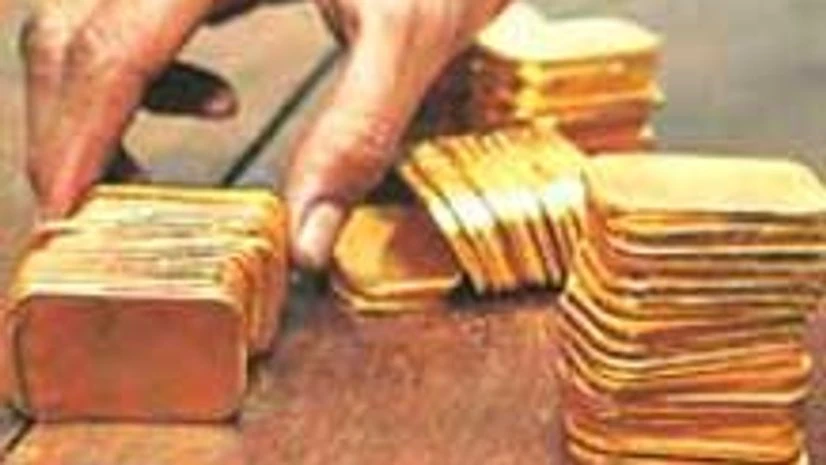India's April trade deficit leapt more than 72% from March to $17.8 billion, the government said, after retail customers in the world's largest gold importer went on a spree to take advantage of a correction in global gold prices.
Gold and silver imports in the month surged to $7.5 billion.
The Reserve Bank of India (RBI) had flagged a high current account deficit earlier this month as the biggest risk "by far" to Asia's third-largest economy even as it cut interest rates by a quarter point for the third time since January.
It said a high current account deficit and risks of a resurgence of inflationary pressures constrained room for further policy easing.
Still, some analysts are optimistic of another rate cut by mid-2013 as they expect the trade deficit to narrow with a slowdown in gold demand, while inflation has come down sharply in recent months.
"The surge in gold imports in April could have been due to frontloading of demand given the fall in gold prices, but this demand will come off in the next few months," said Siddhartha Sanyal, India economist, Barclays Capital in Mumbai.
More From This Section
"I don't expect RBI will take any view based on just April trade deficit number."
India's current account deficit widened to a record high 6.7% of GDP in the December quarter, driven by heavy oil and gold imports and lower exports.
Slowing inflation
Meanwhile, government data showed on Monday that retail inflation slowed to a 14-month low in April on a slower rise in food prices, extending a trend of softening price pressures.
Annual consumer price inflation was down for the second straight month at 9.39%, the lowest level since February 2012.
Food prices for consumers rose an annual 10.61% in April, slower than an annual rise of 12.42% in March.
Unlike most central banks, the Reserve Bank of India does not use retail inflation as the main number to draw up its monetary policy, preferring the wholesale price index (WPI).
"Overall, with both headline CPI and WPI moderating and growth still languishing, we expect a cumulative 50 basis points of rate cuts in 2013," Nomura wrote in a note on Monday.
India's one-year overnight indexed swap rate fell 3 basis points to 7.16% after the retail inflation data, dealers said. The benchmark 10-year bond yield fell 1 basis point to 7.56%.

)
